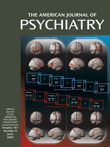Abstract
OBJECTIVE: The effect of antipsychotic medication on neurocognitive function remains controversial, especially since most previous work has compared the effects of novel antipsychotic medications with those of high doses of conventional medications. This study compares the neurocognitive effects of olanzapine and low doses of haloperidol in patients with first-episode psychosis. METHOD: Patients with a first episode of schizophrenia, schizoaffective disorder, or schizophreniform disorder (N=167) were randomly assigned to double-blind treatment with olanzapine (mean modal dose= 9.63 mg/day) or haloperidol (mean modal dose=4.60 mg/day) for the 12-week acute phase of a 2-year study. The patients were assessed with a battery of neurocognitive tests at baseline and 12 weeks after beginning treatment. RESULTS: An unweighted neurocognitive composite score, composed of measures of verbal fluency, motor functions, working memory, verbal memory, and vigilance, improved significantly with both haloperidol and olanzapine treatment (effect sizes of 0.20 and 0.36, respectively, no significant difference between groups). A weighted composite score developed from a principal-component analysis of the same measures improved to a significantly greater degree with olanzapine, compared with haloperidol. Anticholinergic use, extrapyramidal symptoms, and estimated IQ had little effect on the statistical differentiation of the medications, although duration of illness had a modest effect. The correlations of cognitive improvement with changes in clinical characteristics and with side effects of treatment were significant for patients who received haloperidol but not for patients who received olanzapine. CONCLUSIONS: Olanzapine has a beneficial effect on neurocognitive function in patients with a first episode of psychosis. However, in a comparison of the effects of olanzapine and low doses of haloperidol, the difference in benefit is small.



